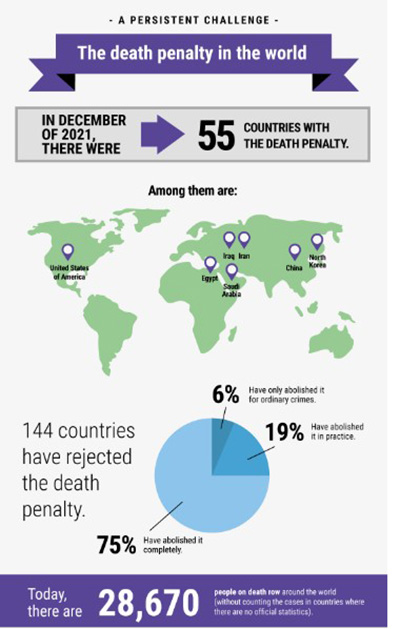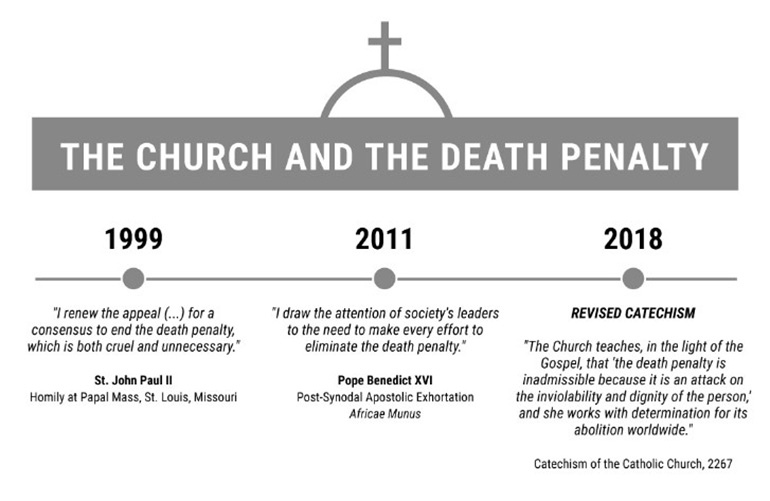By Communications Department - Archdiocese of Miami
VATICAN CITY | The Pope Video for September has just been released with the prayer intention that the Holy Father is entrusting to the entire Catholic Church through the Pope’s Worldwide Prayer Network. This month, Francis invites us to pray “that the death penalty, which attacks the dignity of the human person, may be legally abolished in every country.”
Capital punishment continues to be present in the world.
In this edition of the Pope Video — produced in collaboration with the Catholic Mobilizing Network, a U.S. based Catholic organization working to end the death penalty and promote restorative justice through education, advocacy, and prayer — Pope Francis celebrates the fact that rejection of the death penalty is spreading throughout the world, something the Church considers “a sign of hope.”
Indeed, according to data from the United Nations, some 170 countries have abolished the death penalty, have imposed a moratorium on its implementation in legislation or in practice, or have suspended executions for more than 10 years. Nevertheless, capital punishment continues to be applied in 55 countries on various continents.
The Church’s position on the death penalty
From John Paul II to Benedict XVI, the popes have spoken out firmly in recent decades against the use of capital punishment by governments. Pope Francis took an additional step in 2018 by approving a new paragraph in the catechism, clearly condemning capital punishment and expressing the Church’s commitment to its complete abolition.
In this month’s video, which arrives at a moment marked by news of death sentences and executions in various parts of the world, the Holy Father calls upon not only Christians, but all people of good will.
He reiterates that “capital punishment offers no justice to victims, but rather encourages revenge.” From a moral perspective, it is inadmissible because “it destroys the most important gift we have received: life.”
Finally, “in the light of the Gospel, the death penalty is unacceptable. The commandment, ‘Thou shalt not kill,’ refers to both the innocent and the guilty.” In addition, there are other motives for rejecting the death penalty: possible miscarriages of justice, and the fact that “up to the very last moment, a person can convert and can change.”
“Always, in every legal sentence, there must be a window of hope,” Francis explains.




Comments from readers